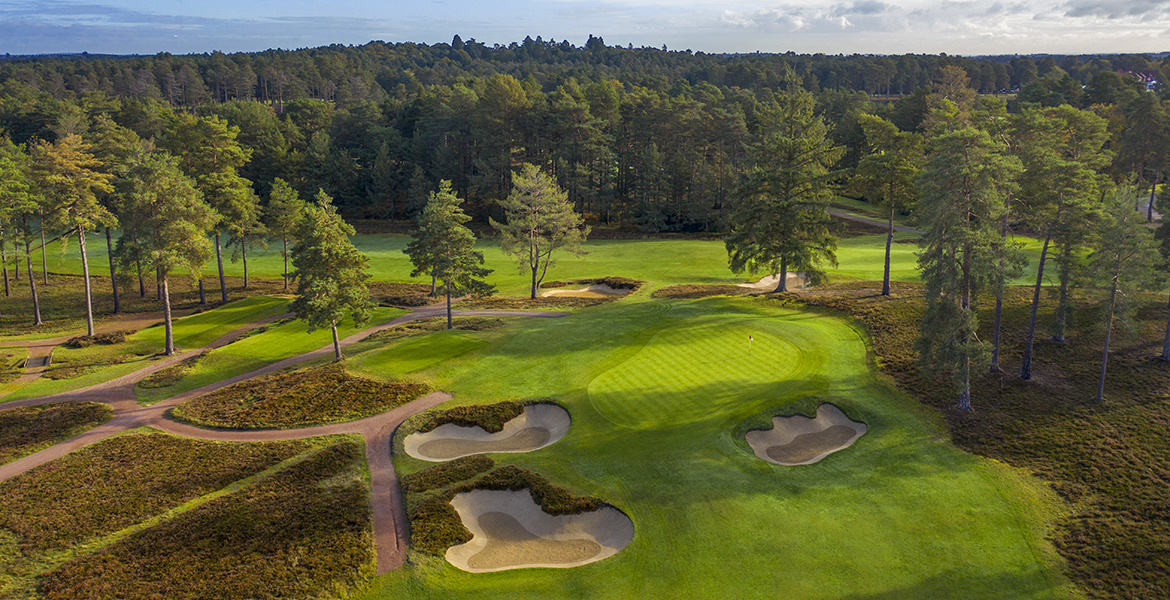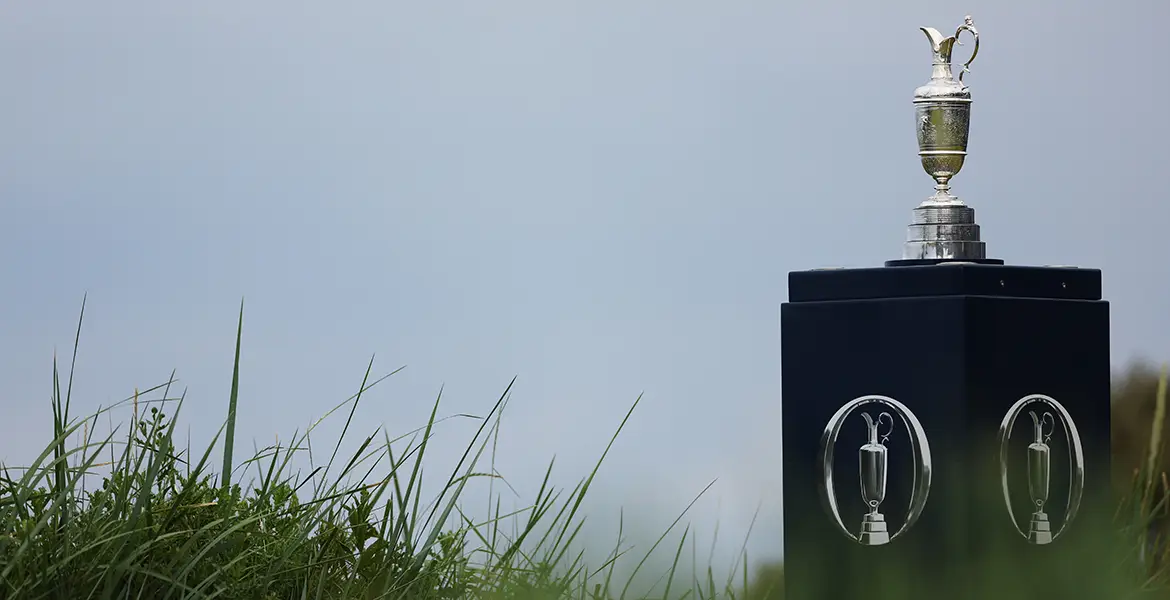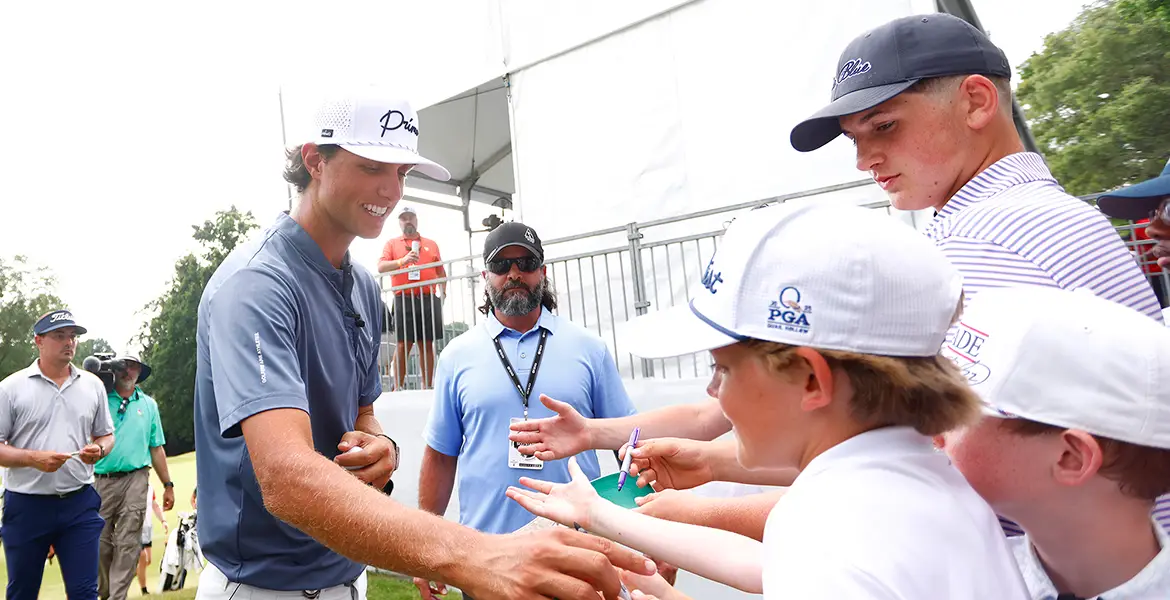For nearly 50 years, Bob Rotella has been helping golfers win the battle with their minds
You can still see the athlete. Behind the wrinkles and eye bags, the slight stoop and occasional hitch in his step, Bob Rotella Ph.D.—known by most in golf as Dr. Bob—still has the shape and carriage of a man who was a three-sport collegiate athlete at Castleton State College in Vermont from 1969 to 1971, back when three sports a year was possible. Basketball and lacrosse were his best, followed by golf. Now, with just enough black left in his combed-back hair to leave many guessing his age (it’s 75), Rotella has become the pasha of golf’s mental game and players come to him.
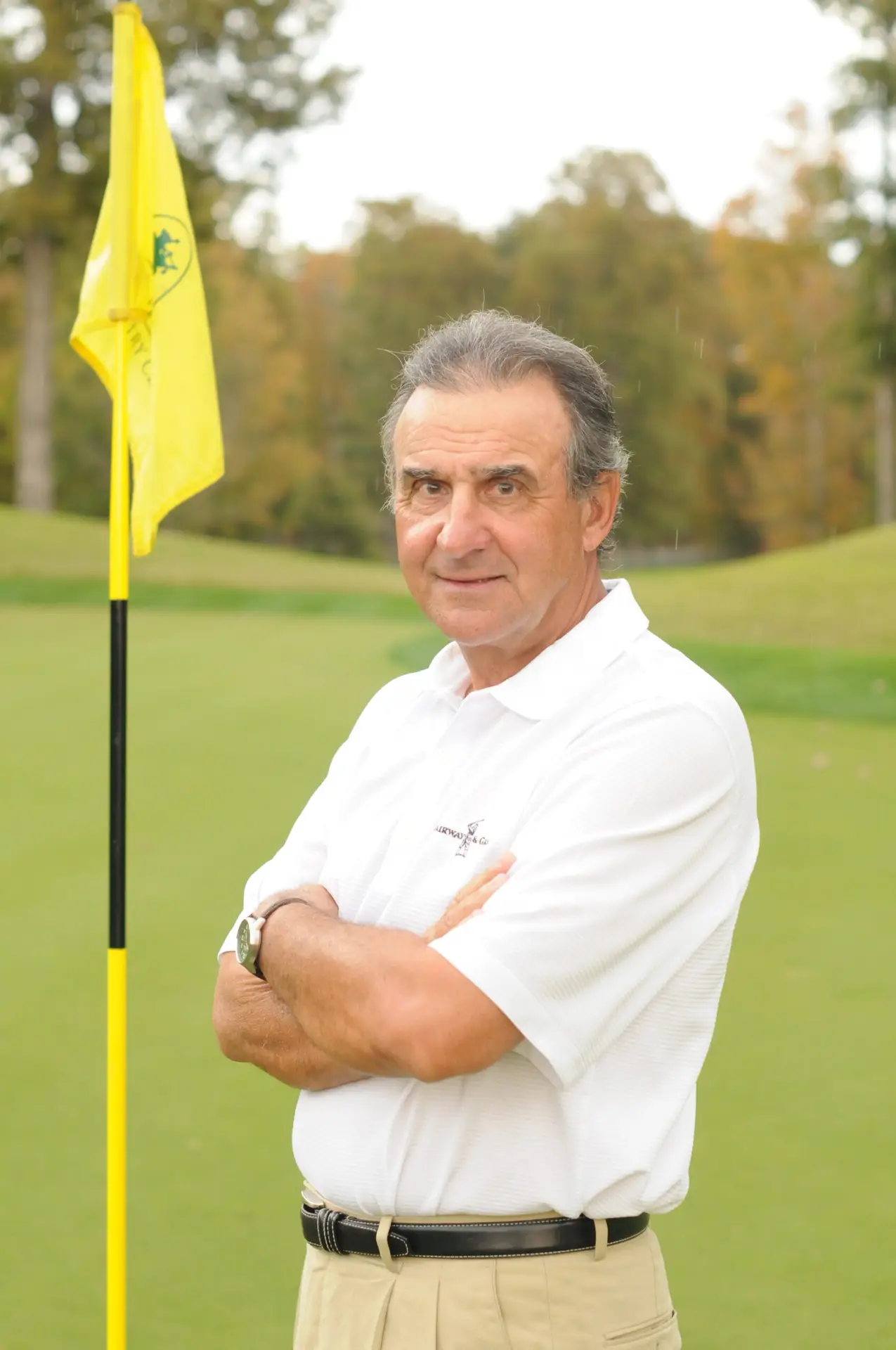
“I still travel a bit,” he says from his study in Keswick, Va., about 10 minutes from downtown Charlottesville and another 10 from Thomas Jefferson’s Monticello and the University of Virginia where Rotella did his postgraduate work and years of coaching. “I spend three months in West Palm Beach in the winter, so I get most of my player work done there. And then players come here to Charlottesville. I still work with some basketball players and with Joe Gibbs Racing. I also do a lot with (horse) show jumpers, and I do a decent number of corporate talks. But I don’t travel as much as I used to. I’m here more than I’m not.”
No matter where he is, his impact is everywhere. In the last 40-plus years, only two coaches have racked up a who’s who of the world’s best players: Butch Harmon and Dr. Bob. And while Butch played the PGA Tour after serving in the U.S. Army in Vietnam, Rotella made a lot more floating jump shots than meaningful five-footers in his career. Still, players like Rory McIlroy have said of Rotella, “I always feel a bit better about everything, a bit better about myself, after I have a chat with him. I just feel, after I’ve talked to him, a lot more relaxed, a lot looser, a lot more confident in myself. So, I’d say talking about the mental side of things, I just focus on those chats with Bob.”
Chats are the best description of Rotella’s methodology. Most of his work involves conversations about what a player wants, how he views himself, how he thinks, and where he sees himself in the future.
“Bob once wrote that he’d rather meet somebody with great dreams than a great person with no dreams,” Padraig Harrington said of Rotella. “It’s really about what you believe you can achieve. And that’s what limits you.”
Rotella agreed with that assessment. “I work with people who have exceptional talent and try to get them to perform at their peak by changing their attitudes and putting them in a great mood every day,” he said. “I’m coaching people’s minds. It’s hard to do, but if you want to be great, you have to do things that other people can’t do or won’t do. That’s hard. To get your mind in a great place on every shot in a game of mistakes, it’s hard to do. To only see the shot you want, or only see the putts going in, that’s not easy. That’s the challenge.”
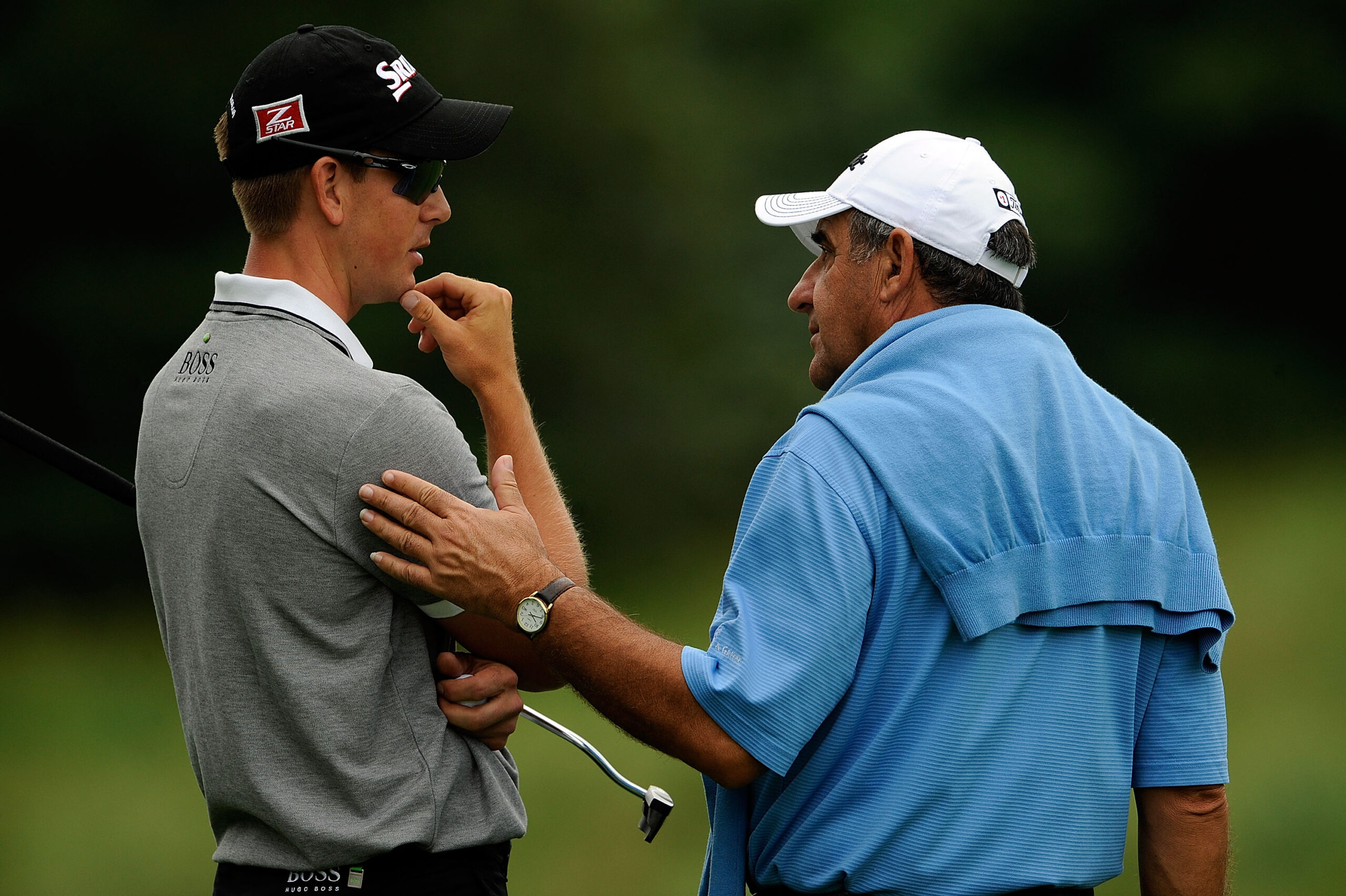
Rotella didn’t begin in golf. After graduate school, he worked with special-needs kids, a group, he said, that “have the best attitudes I’ve ever seen.” Then he coached lacrosse at the University of Connecticut for six years before moving to UVA, also to coach.
He came from a time and place where coaching was a revered profession. Growing up in Vermont, where he played quarterback on the football team and captained every basketball team on which he played, Rotella would always look forward to holiday visits from his cousin, legendary Staten Island high school football coach Sal Somma. Somma would regale the family with stories of his friend and contemporary, Vince Lombardi.
“Coaches were kings in those days,” Rotella said before trailing off into a rare moment of silence, as if gray ghosts of gridirons past whispered to him in the distance.
His first foray into golf came after a presentation he gave at Madison Square Garden in 1976. The New York Times Company owned Golf Digest at the time, and after one of the Times bigwigs heard Rotella, he suggested that the guys trying to launch the Golf Digest Instruction Schools have Dr. Bob in for a chat. So, Bob flew down to Orlando to give a two-hour presentation at Disney’s Contemporary Hotel.
“The first talk I ever gave on golf, it was to Sam Snead, Paul Runyan, Bob Toski, Cary Middlecoff, Jim Flick, and Davis Love Jr.,” Rotella says. “One of them said, ‘Golf is harder than other sports because it’s not reactionary.’ I looked at them and said, ‘Is that a rule? Is there a rule that says golf can’t be reactionary?’ They said what do you mean, and I said, ‘If you look at your target and don’t think between then and reacting to it, then golf would be a reactionary sport.’ They looked at me like I’d just said the most unbelievable thing they’d ever heard.”
That moment changed the course of the game’s history. As Davis Love III would later say, “In the beginning, my dad thought it was witchcraft. He was very skeptical. But Dad also wanted to learn.”
The whole thing could have gone off the rails and no one would have ever heard Rotella’s most famous line, “Golf is not a game of perfect,” if it weren’t for one reaction.
“They warned me that Snead would rip it to shreds because he’s old school,” Rotella says. “But I gave my talk, and we were going to do some questions and answers. As soon as I finished, Snead stood up and poured his guts out about the role of the mind and emotions in his golf game. He talked about the U.S. Open and how he had a lead and started worrying about it and fell apart, and how he carried those memories for the rest of his life. He talked for about 20 minutes about all the ways the mind and emotions play out in the game.
“I’ve always said, if Snead had stood up and said the mind and emotions play no role in golf, I don’t know if anyone else would have asked a question,” Rotella says.
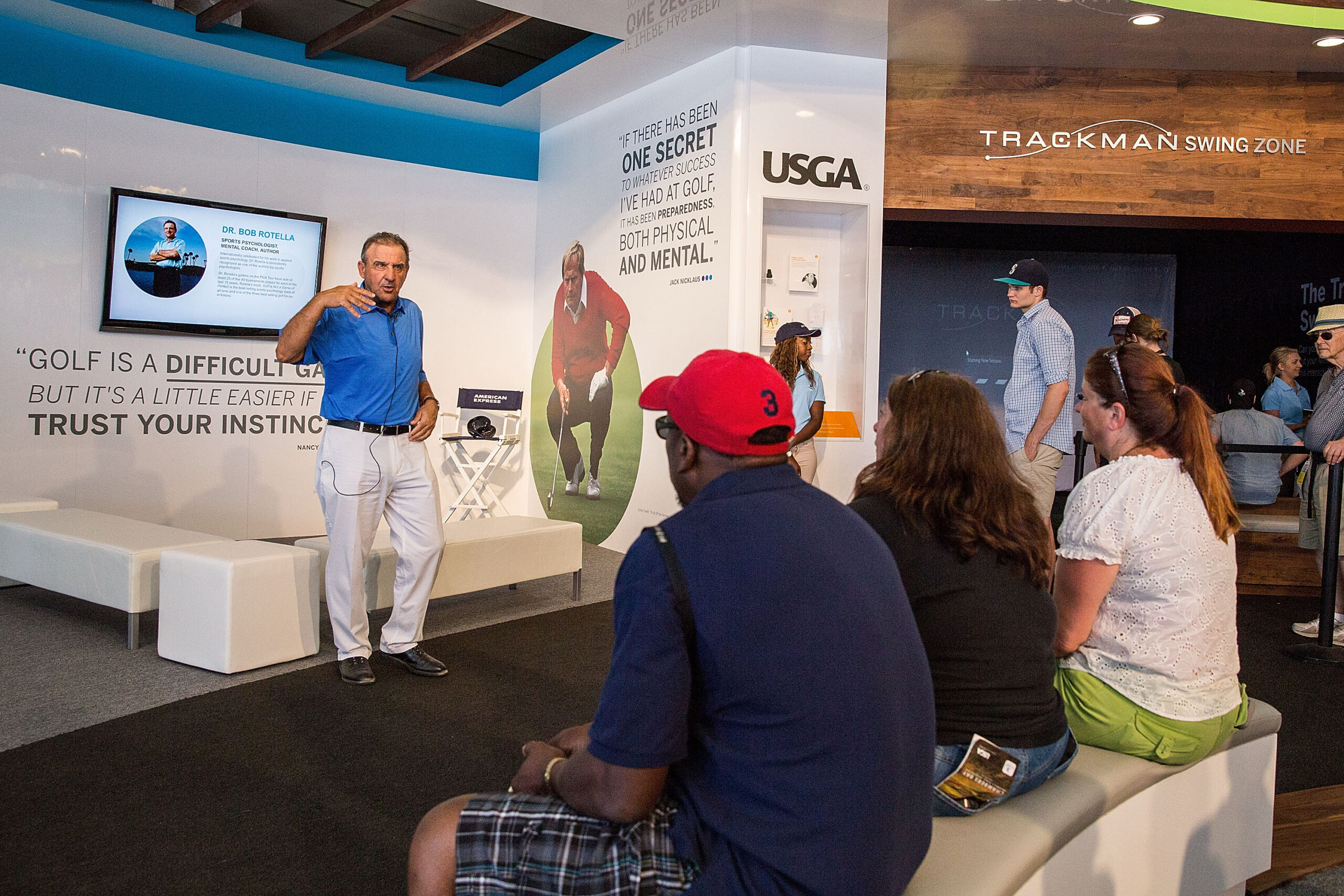
That is the moment sports psychology became a thing in golf.
Today, Rotella’s influence extends to players who have never met him. “You can’t talk about putting without talking about the mental side of the game,” says Brad Faxon, who has become one of the go-to gurus of putting for Tour players and elite amateurs. Faxon was also one of Rotella’s most ardent admirers.
“When I met him, there was nobody else like him,” he says. “I probably talked with Rotella every week of my career. I was as close to Bob as any of the players back in the day. He was one of the biggest influences in my life. So, I know what’s helped me and what’s helped other players, I can repeat what Rotella has told me, but that doesn’t make me a sports psychologist.”
Rotella has authored more than a dozen golf books and his speaking calendar is as full as he wants it to be. Still, the message remains relatively unchanged after 50 years.
“Why would anyone take a lot of time between looking at their target and reacting to it?” Rotella asked rhetorically. “Everyone says reactionary sports are easier, but they try to make golf harder by thinking in between seeing their target and swinging. I don’t care if you see the target with your eyes or in your mind’s eye, if you react to the target or your mental picture of the target, the game’s a lot easier.
“If in a basketball game Steph Curry missed his first three shots and his coach started telling him something technically that he was doing wrong, Steph would say, ‘Wait a minute, I can’t play when you do this. Leave me alone.’ But in golf we immediately go to the technical. A lot of it stems from the fact that the camera can’t take a picture of what’s inside your head. The camera shows the swing. So, when someone hits a bad shot, they go the pictures and tell you want happened. But the swing or stroke changes when your mind is in the wrong place. If you want to make the game more predictable, you have to think in a more predictable manner.
“See the ball, hit the ball,” Rotella says. “You need a long-term memory of your successes and a short-term memory of your failures, because you’re going to have plenty of both if you play big-time sports. Instant amnesia is a critical skill. Mark Twain said it right a long time ago when he said, ‘The inability to forget is infinitely more devastating than the inability to remember.’ Jack Nicklaus said pretty much the same thing when he said, ‘Why would anyone knowingly and willingly choose to relive a bad shot or a missed putt?’”


